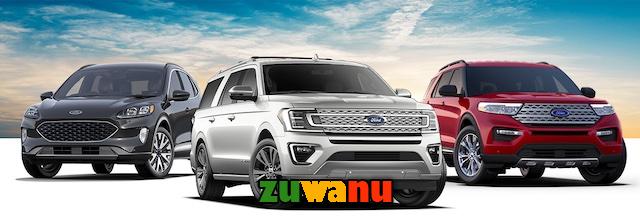Ford Motor Company: Pioneering the Automotive Landscape
Ford Motor Company
Table of Contents
The Ford Motor Company, founded in 1903 by Henry Ford, has undeniably left an indelible mark on the automotive industry. From its innovative production lines to its unparalleled expertise in car manufacturing, Ford’s journey has been a testament to human ingenuity, perseverance, and the spirit of innovation. This article delves deep into Ford’s legacy, achievements, contributions, and its unique position in the automotive industry.
The Birth of Ford: A Visionary Approach to Mass Production
Before Ford, the automobile industry was still in its nascent stage, producing vehicles at a slow pace and often at exorbitant prices. Henry Ford’s revolutionary idea was to make cars affordable for the masses. His introduction of the assembly line in 1913 transformed the industry. This method enabled Ford to produce cars at a much faster rate, significantly reducing costs and making automobiles accessible to a broader audience.
Expertise and Production Lines: The Ford Way
Ford’s expertise lies not just in designing and manufacturing vehicles but in its innovative approach to production. The assembly line, which became synonymous with Ford’s manufacturing process, involved breaking down the production of a car into multiple tasks. Each worker would specialize in a specific task, allowing for efficiency and speed in the manufacturing process. This method not only reduced production time but also lowered the cost of manufacturing, enabling Ford to offer vehicles at competitive prices.
Furthermore, Ford’s expertise extended beyond the assembly line. The company invested heavily in research and development, pioneering advancements in automotive technology, safety, and sustainability. Over the years, Ford has introduced numerous groundbreaking technologies and features in its vehicles, setting industry standards and shaping the future of mobility.

Achievements and Contributions: Shaping the Auto Industry
Ford’s contributions to the auto industry are manifold. Here are some of its notable achievements and contributions:
- Model T: Introduced in 1908, the Model T was a game-changer. It was affordable, reliable, and easy to maintain, making car ownership accessible to the average American.
- Innovations in Manufacturing: Ford’s introduction of the moving assembly line in 1913 revolutionized manufacturing processes across industries, not just automotive.
- Safety Innovations: Ford has been at the forefront of automotive safety, introducing features such as the safety belt, airbags, and advanced driver-assistance systems (ADAS) in its vehicles.
- Environmental Initiatives: Ford has made significant strides in sustainability, investing in electric and hybrid vehicles, as well as initiatives to reduce carbon emissions and promote eco-friendly manufacturing processes.
Pros and Cons: The Ford Legacy
Pros:
- Innovation: Ford’s commitment to innovation has driven advancements in automotive technology, safety, and sustainability, setting industry benchmarks and shaping the future of mobility.
- Affordability: Ford’s mass production techniques have made cars more affordable and accessible, democratizing mobility and fostering economic growth.
- Legacy and Heritage: With over a century of history, Ford has built a rich legacy and heritage, earning the trust and loyalty of customers worldwide.
Cons:
- Challenges in Adaptation: As the automotive industry evolves, Ford faces challenges in adapting to changing consumer preferences, technological advancements, and regulatory requirements.
- Competition: The automotive industry is highly competitive, with numerous players vying for market share. Ford must continually innovate and differentiate itself to maintain its competitive edge.

Why Ford?
Choosing Ford means opting for a brand with a rich legacy, a proven track record of innovation, and a commitment to quality, safety, and sustainability. Ford’s diverse lineup of vehicles, ranging from efficient compact cars to powerful trucks and SUVs, offers something for everyone. Moreover, Ford’s global presence ensures that customers worldwide can access its products and services, backed by a robust network of dealerships and service centers.
Full Meaning of Ford
Ford, originally named the Ford Motor Company, is named after its founder, Henry Ford. The name ‘Ford’ symbolizes innovation, reliability, and affordability, reflecting the company’s mission to provide quality vehicles at accessible prices.
Comparison with Competing Brands
While Ford has carved a unique niche for itself in the automotive industry, it faces stiff competition from other major players such as General Motors (GM), Toyota, Volkswagen, and Tesla, among others. Each of these brands has its strengths, weaknesses, and unique value propositions.
- General Motors (GM): Like Ford, GM is a longstanding player in the automotive industry, with a diverse lineup of vehicles spanning various segments. While both companies have similar manufacturing capabilities and global presence, GM has focused more on electric and autonomous vehicles in recent years, positioning itself as a leader in future mobility solutions.
- Toyota: Known for its reliability, efficiency, and hybrid technology, Toyota is a formidable competitor to Ford. While Ford has made strides in electric and hybrid vehicles, Toyota’s extensive lineup of hybrid models, such as the Prius and RAV4 Hybrid, gives it a competitive edge in the eco-friendly vehicle market.
- Volkswagen: Volkswagen, with its broad portfolio of brands and models, offers a range of vehicles catering to diverse consumer needs. While Ford and Volkswagen compete in various segments, Volkswagen’s strong presence in the European and Asian markets gives it a distinct advantage in terms of global reach and brand recognition.
- Tesla: As a pioneer in electric vehicles (EVs), Tesla has disrupted the automotive industry with its innovative technology, performance, and brand appeal. While Ford has made significant investments in EVs, Tesla’s dedicated focus on electric mobility and its cult-like following among tech-savvy consumers pose a unique challenge to traditional automakers like Ford.
Ford Motor Company’s journey from a pioneering startup to a global automotive powerhouse is a testament to its resilience, innovation, and commitment to excellence. With a rich legacy spanning over a century, Ford continues to shape the automotive landscape, driving progress and pushing boundaries. While the road ahead presents challenges and competition, Ford’s enduring values, adaptability, and vision for the future position it well to navigate the evolving automotive landscape and continue its legacy of success.
FORD LINEUP
Ford Mustang, Ranger, Explorer, and Raptor: A Deep Dive into Ford’s Iconic Lineup
Ford Motor Company’s diverse lineup of vehicles encompasses a wide range of models, each catering to different consumer needs and preferences. Among these, the Mustang, Ranger, Explorer, and Raptor stand out as iconic and popular choices. Let’s delve into each of these models, exploring their power, design, fuel efficiency, durability, engine specifications, and more.
Ford Mustang: The Iconic Muscle Car
Power and Performance: The Ford Mustang is synonymous with American muscle, offering a thrilling driving experience with powerful engine options. The Mustang GT, for instance, is equipped with a 5.0-liter V8 engine that delivers impressive horsepower and torque, ensuring exhilarating acceleration and performance.
Design: The Mustang’s unmistakable design blends classic cues with modern styling elements, capturing the essence of a true muscle car. Its sleek profile, aggressive stance, and iconic pony emblem make it a head-turner on the road.
Fuel Efficiency: While the Mustang prioritizes performance, newer models incorporate fuel-saving technologies such as EcoBoost engines and advanced aerodynamics to improve fuel efficiency without compromising on power.
Durability: Built with high-quality materials and robust engineering, the Mustang boasts excellent durability, making it a reliable choice for enthusiasts and daily drivers alike.
Pros and Cons:
- Pros: Powerful engines, iconic design, exhilarating performance, and a rich heritage.
- Cons: Limited rear-seat space in coupe models, potentially higher ownership costs due to performance-focused components.
Ford Ranger: The Versatile Pickup
Power and Performance: The Ford Ranger offers a blend of power and versatility, making it suitable for both work and leisure. With options for a potent 2.3-liter EcoBoost engine or a robust 2.0-liter turbo diesel, the Ranger delivers impressive towing and payload capacities.
Design: The Ranger’s design balances ruggedness with modern styling, featuring a robust exterior, functional interior, and various trim levels to suit different preferences.
Fuel Efficiency: The Ranger’s engine options prioritize efficiency, with technologies like turbocharging and direct injection optimizing fuel consumption while maintaining performance.
Durability: Designed for durability and reliability, the Ranger is built to handle tough terrains and demanding tasks, making it a trusted companion for adventurers and professionals alike.
Pros and Cons:
- Pros: Versatile performance, capable towing and payload capacities, rugged design, and off-road capabilities.
- Cons: Limited engine options compared to competitors, potentially higher ownership costs for specialized trims.
Ford Explorer: The Family-Friendly SUV
Power and Performance: The Ford Explorer offers a range of engine options, including a powerful 3.0-liter EcoBoost V6 and a hybrid variant, providing a balance of performance and efficiency suitable for family adventures.
Design: The Explorer’s design focuses on comfort, space, and functionality, with a spacious interior, advanced infotainment options, and versatile seating configurations to accommodate various needs.
Fuel Efficiency: With the introduction of hybrid and EcoBoost engine options, the Explorer prioritizes fuel efficiency, making it an eco-friendly choice for families seeking a versatile SUV.
Durability: Built with safety and durability in mind, the Explorer incorporates advanced safety features and robust construction, ensuring peace of mind for drivers and passengers.
Pros and Cons:
- Pros: Spacious and versatile interior, advanced technology features, comfortable ride quality, and a range of engine options.
- Cons: Higher starting price compared to some competitors, potential reliability concerns with newer models.
Ford Raptor: The Off-Road Beast
Power and Performance: The Ford Raptor is designed for off-road enthusiasts, offering exceptional performance with a high-output 3.5-liter EcoBoost V6 engine that delivers impressive horsepower and torque, ensuring unmatched capability on rugged terrains.
Design: The Raptor’s design reflects its off-road prowess, featuring a bold exterior, aggressive stance, specialized off-road tires, and advanced suspension systems to tackle the toughest trails with ease.
Fuel Efficiency: Despite its performance-oriented nature, the Raptor incorporates fuel-saving technologies and efficient engine tuning to optimize fuel efficiency during both on-road and off-road driving conditions.
Durability: Built to withstand extreme off-road conditions, the Raptor boasts enhanced durability, reinforced components, and advanced off-road technologies to ensure reliability and performance in challenging environments.
Pros and Cons:
- Pros: Exceptional off-road capability, powerful engine, aggressive styling, advanced off-road technologies, and specialized features for extreme conditions.
- Cons: Higher price point, potentially lower fuel efficiency compared to other models, specialized nature limits everyday practicality for some buyers.
Differences and Similarities
While the Mustang, Ranger, Explorer, and Raptor cater to different segments and preferences, they share common attributes such as Ford’s commitment to quality, innovation, and performance. However, each model has distinct characteristics that set it apart:
- Mustang: Focuses on performance, heritage, and iconic design, targeting enthusiasts seeking a thrilling driving experience.
- Ranger: Emphasizes versatility, capability, and practicality, appealing to consumers looking for a reliable and capable pickup for various tasks.
- Explorer: Prioritizes comfort, space, and family-friendly features, targeting families and individuals seeking a spacious and versatile SUV.
- Raptor: Designed for extreme off-road performance, the Raptor appeals to off-road enthusiasts and adventurers seeking unmatched capability and specialized features.
In conclusion, Ford’s lineup of Mustang, Ranger, Explorer, and Raptor exemplifies the company’s diverse offerings, catering to different consumer needs and preferences. Whether you’re seeking a performance-oriented muscle car, a versatile pickup, a family-friendly SUV, or an off-road beast, Ford’s iconic models offer a blend of power, design, efficiency, and durability to suit various lifestyles and adventures.
